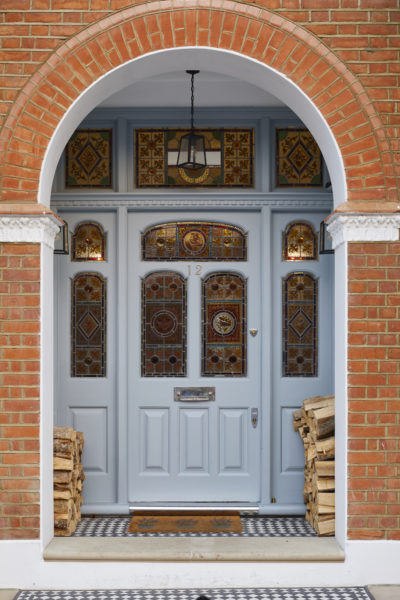When talking to clients we will always advise them to make sure that they have the appropriate insurance in place before the building works start. This is often a contractual or lender requirement but it also gives peace of mind.
Our clients often ask us about what insurance cover they need so we thought we’d get some answers to frequently asked questions from our friends at Insurance Tailors. IT are a one stop insurance brokerage covering all your insurance needs. They also offer specialist policies in respect of residential building and renovation projects. Here’s what they had to say:
I’m about to do a loft conversion and a rear kitchen extension. What insurance do I need as the property owner?
The first thing to do is check with your current home insurer to find out of they will cover you while the works are ongoing and to what level they will cover you. Depending on the works you are planning it is likely that your home insurer will either reduce cover to FLEEA (Fire, Lightning, Explosion, Earthquake and Aircraft) or remove cover completely, in which case you would need a renovations specific insurance. This would cover your home AND the building works under a single policy with one insurer…therefore removing any reliance from a builder’s insurance and ensuring you have comprehensive cover throughout the project.
We’ve just bought a house and renovation works will start in about 2 – 3 months. What’s the best insurance to have while the house isn’t occupied?
The most important thing is to make sure that the insurer of the building is aware that the property is unoccupied and is happy with this. Commonly insurers will place conditions on the property, such as it must be inspected every 2 weeks and may reduce cover to FLEEA (as above!). Specialist policies are available for unoccupied properties which can be put in place on a short-term (rather than annual) basis.
What insurance should our builder have before starting work on our house?
Your builder is legally required to have Employers Liability insurance (to protect their employees) but if you are using a builder the most important thing is that a builder has valid Public Liability insurance to a sensible level (normally £1/2/5m).
Depending on the nature of your contract with the builder you may also need them to have Contractors All Risks cover (which covers the structure they are building for you, until practical completion), however on larger projects we would always recommend the homeowner takes out this cover, as per point 1 above.
As the property owner do we need to take out any insurance even though our builder has insurance?
Yes you do. 2 key reasons:
Firstly most home insurers will reduce cover on the existing structure of your house to FLEEA for the duration of works; this cover is insufficient to meet the requirements of most UK mortgage lenders in relation to finance they have provided! So standard home insurance is not the way to go…
Secondly, as well as the existing structure the “works” need to be insured (i.e. the growth/changes to the existing property).
The only way to meet both of the above points without opening yourself up to additional exposures is to take out a specific insurance policy for the duration of the project, to avoid the potential for a claim to “fall down the cracks”.
We’re thinking of extending our house with a basement dig and really want to make sure we have the correct insurance, what do we need to do?
Digging a basement is one of the instances where almost all home insurers will say that they cannot cover you. You will need to take out specific renovations insurance and it is highly likely you will have to consider party wall insurance too. We would advise having a contract in place, the most common of which is the Joint Contract Tribunal (JCT). This is a template contract you can purchase online with various options depending on the level of the work being done.
I’ve heard ‘non-negligence insurance’ mentioned, what is this and do I need it?
Non-Negligent Party Wall insurance provides cover for the property owner in the instance when there is damage to a 3rd party property as a result of the renovations works – and no one person/professional can be found to be at fault. Cover can be provided for the duration of the work and a 12 month (or longer) period post completion as this is when potential claims may come to light. Non-negligent Party Wall cover is particularly important in basement digs and for flats undergoing works.
Once the building and refurbishment works are completed do I just need building insurance?
Once your building works are complete you can move back to normal buildings and contents insurance, however we would recommend that you get a full survey done and ensure that the build sum insured is updated on your insurance documents. Many high-net worth insurers will offer this free.
What will these policies cost me?
The painful answer here is it depends… it depends on the value of the works, the duration of the works, whether there are unforeseen issues such as subsidence and whether you choose to take out non-negligence. Typically these insurances can be between 0.5% – 1% of the value of the works.
One other point to keep in mind; if you are involved in building a “new build”, please remember that it is VERY important to take out Structural Warrantee/Latent Defects insurance at the outset of the project. Whilst this cover is expensive it can be impossible for a “buyer” to raise a mortgage on a property where no such cover is in place.
For further advice on your insurance requirements please contact Sarah Barrett on sbarrett@insurancetailors.com 0207 199 3253.
If you’d like to discuss your project further please don’t hesitate to contact Run Projects at hello@runprojects.co.uk or call 0203 488 1181.




